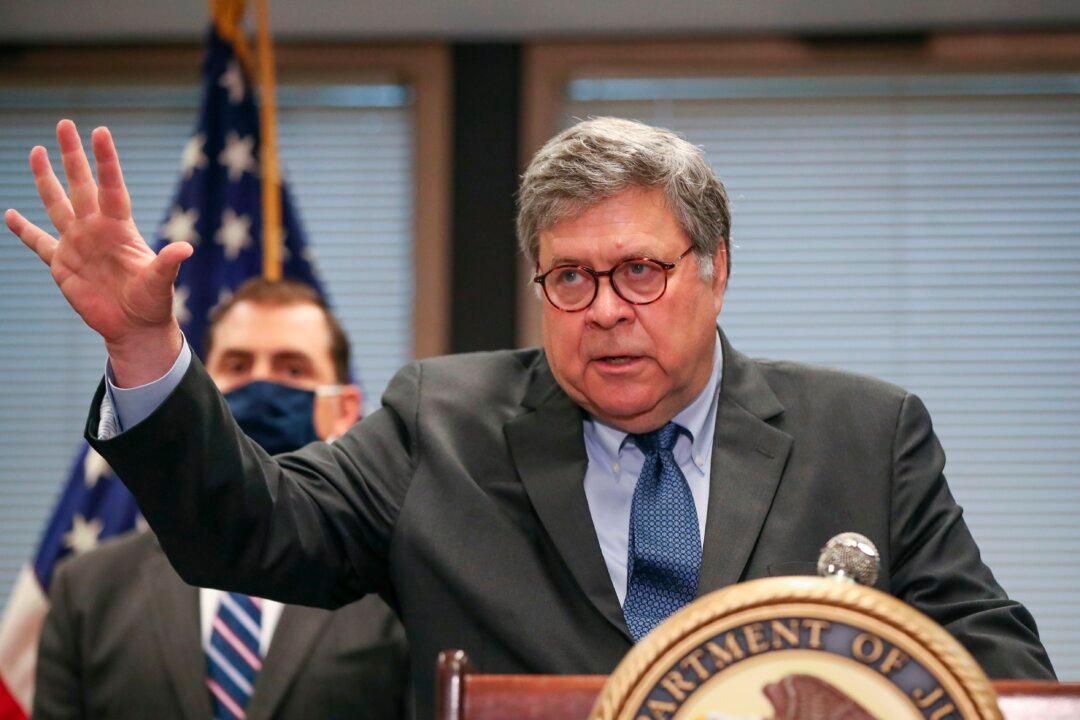Attorney General William Barr says the most effective step to reduce instances of excessive use of force by police officers is to foster a culture of zero tolerance for resisting police.
“If we wish to minimize excessive force situations, the most important and most effective step we can take is to reestablish and enforce the principle that there is no valid justification for physically resisting a police officer,” Barr said Oct. 20 during an address to law enforcement at the National Association of Police Organizations Conference.




